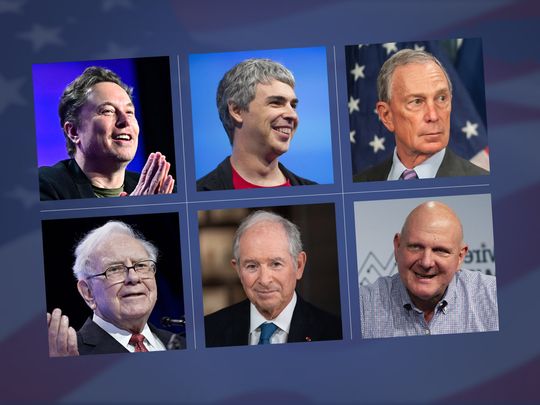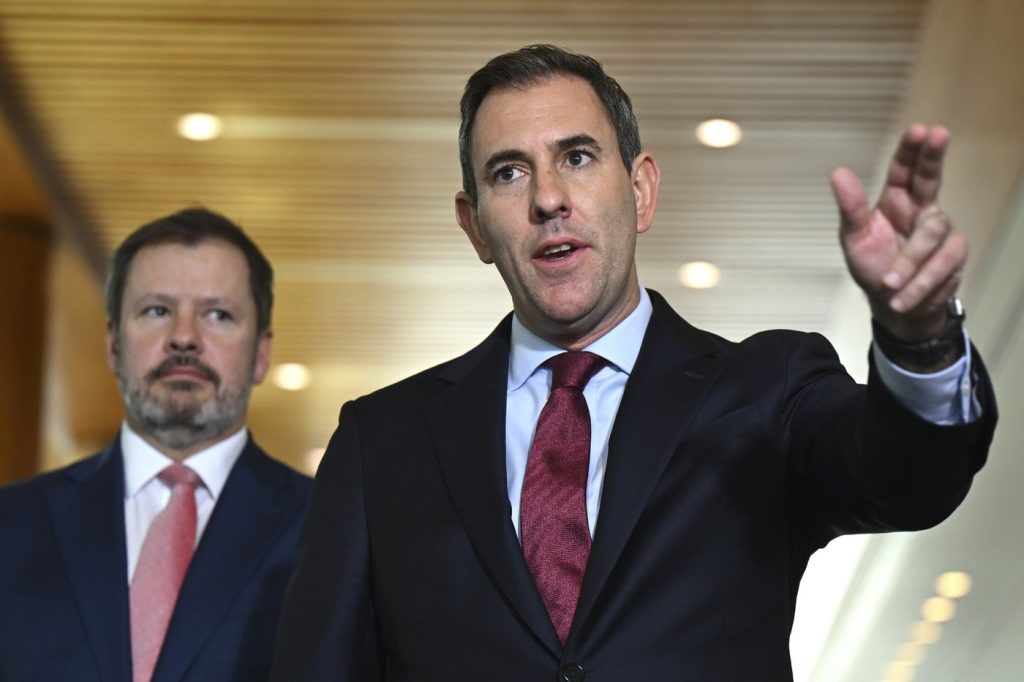
University is not mandatory. Some entrepreneurs are self-taught, and others drop out of college to pursue business ideas, like Bill Gates, Mark Zuckerberg and Steve Jobs. However, a university degree speaks volumes, commanding respect in boardrooms and confidence in negotiations.
Today, Elon Musk is America’s most-educated billionaire. He studied for seven years, has two degrees, and is currently the world’s richest person. Larry Page is America’s second most-educated billionaire.

He studied at Stanford University, one of America’s best higher education institutions. Michael Bloomberg ranks third. He studied at Harvard University, America’s third best school.
A new study reveals America’s most educated billionaires. The top 50 highest net worth individuals from Forbes’ Real-Time Billionaires List – made up of more than 2,781 billionaires – were analysed. The study ranked each billionaire against five determining factors to receive a score out of 10.
The five determining factors used in the index include each billionaire’s net worth, number of degrees achieved, the university ranking, the university acceptance rate, and an estimated time spent studying at higher education. Using the index score, universities attended, estimated years studying, number of degrees and net worth Musk came out as America’s most educated billionaire, scoring 7.14 out of a possible 10.
With a net worth of $318 billion dollars (as per Forbes' real-time list), the Tesla CEO has two bachelor's degrees including a Bachelor of Arts in Physics from the University of Pennsylvania. He also has a Bachelor of Science in Economics from the Wharton School at the University of Pennsylvania. Although Musk enrolled in a PhD program in applied physics and materials science at Stanford University, he left after just two days to pursue entrepreneurial ventures in the tech and energy fields.
In the study, the University of Pennsylvania has ranked 84.7 in US News’ 2024-2025 Best Global Universities Rankings and the acceptance rate is seven percent, among the lowest in the study. Larry Page is the second most educated billionaire, with a net worth of $147.
7 billion, he scored 6.92 out of 10 in the index study. Page spent seven years studying and also has two degrees–a Bachelor of Science in Computer Engineering from the University of Michigan and a master’s in Computer Science from Stanford University.
Larry Page's academic focus on computer engineering and computer science laid the foundation for his interest in creating algorithms and systems, culminating in the Google search engine. The universities Page attended have an average ranking of 178.2 and an acceptance rate of 11 per cent.
Michael Bloomberg, who ranks third, scored 6.8 out of 10. He currently has a net worth of 104.
7 billion dollars. After studying for six years, he left university with two degrees, a Bachelor of Science in Electrical Engineering from Johns Hopkins University. He also obtained a master’s degree in business administration from Harvard Business School in 1966.
His MBA education provided him with a solid foundation in business and finance, which he later leveraged in his early career at Salomon Brothers and in founding Bloomberg L.P. The universities he attended have an average rating of 185.
2 and their average acceptance rate is five percent. Warren Buffett is the fourth most educated billionaire, scoring 6.55 out of 10.
Buffett has a net worth of $148.8 billion and, like Musk, he also studied at University of Pennsylvania, as well as University of Nebraska-Lincoln, and Columbia University. He initially enrolled at the Wharton School of the University of Pennsylvania at age 17.
He studied there for two years, majoring in business, before transferring. Buffett transferred to the University of Nebraska-Lincoln, where he completed his undergraduate studies and graduated at the age of 19 with a Bachelor of Science in Business Administration. For his graduate studies, Buffett attended Columbia Business School at Columbia University, where he earned a Master of Science in Economics.
Buffett studied for four years in total, and his schools have an average ranking of 225.1 and an acceptance rate of 30 per cent in the index. Ranking in fifth place is Stephen Schwarzman, chairman and CEO of the Blackstone Group (net worth: $55.
8 billion) scoring 6.37 out of 10. Schwarzman has two degrees.
After studying for seven years, Schwarzman earned a Bachelor of Arts in Social Studies from Yale University and after this, he went on to complete an MBA at Harvard Business School. The universities he studied at rank an average of 186 and have an acceptance rate of four percent. Ranking 6th through to 10th are Steve Ballmer, Sergey Brin, Jensen Huang, Charles Koch, and Jeff Bezos.
“Education provides several key advantages that can contribute to success, especially in complex fields where many billionaires build their fortunes,” said Matt Schwachofer, co-founder of The Casino Wizard. Two studies affirm this research: A report by the Institute for Fiscal Studies (IFS) found that, on average, graduates earn significantly more than non-graduates — 28 per cent more for women and 8 per cent more for men by age 29. The higher earnings are linked to graduates accessing senior roles in industries that demand higher skill levels.
Furthermore, the analytical, problem-solving, and interpersonal skills developed during university are instrumental in business leadership roles. More importantly, the IFS study cited that least advantaged students gain a lot from going to university. Another research conducted by the University of Liverpool emphasises that degrees from accredited business schools often equip individuals with essential leadership skills, industry insights, and global networks.
These factors increase entrepreneurial success rates and the likelihood of leading sustainable businesses. When seeking financing or funding, partners, or employees, holding degrees from reputable institutions can enhance a businessman’s credibility. “This can be essential for early-stage business leaders trying to gain trust in competitive markets,” Schwachofer said.
He argued that universities, especially elite ones, provide access to networks of talented peers, professors, and alumni, which can be instrumental in finding business partners, investors, and mentors. “For example, Larry Page met Sergey Brin at Stanford, a meeting that led to Google’s founding. Musk's university physics background allows him to understand and contribute to technical discussions with engineers, which has been invaluable in developing products like Tesla’s electric motors and SpaceX’s rocket propulsion systems.












